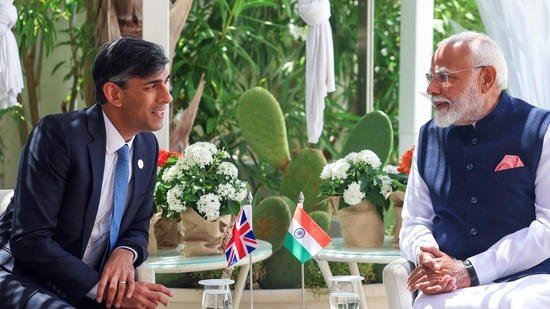The prospect of a Free Trade Agreement (FTA) between India and the United Kingdom has been a topic of significant interest and speculation. With the potential election of Keir Starmer as the British Prime Minister, the dynamics of this relationship may see notable changes. Starmer, the leader of the Labour Party, is known for his pragmatic approach to politics, which could shape the contours of the India-UK FTA in various ways.
Keir Starmer has often emphasized the importance of multilateralism and diplomacy in international relations. This stance is likely to foster a conducive environment for negotiations between India and the UK. Starmer’s administration might prioritize building strong diplomatic ties with India, recognizing it as a key global player and a significant partner in trade.
One of the hallmarks of Starmer’s political agenda is his commitment to workers’ rights and social justice. This could influence the FTA negotiations, with a potential emphasis on ensuring that the trade agreement supports fair labor practices and protects workers in both countries. Starmer’s background as a human rights lawyer suggests he would advocate for trade policies that do not compromise on ethical standards, potentially aligning with India’s own push towards more equitable economic growth.
Economic pragmatism is another cornerstone of Starmer’s political philosophy. Under his leadership, the UK is likely to pursue an FTA with India that maximizes economic benefits while minimizing potential disruptions. This could mean a more balanced approach to market access, tariffs, and trade barriers, ensuring that both nations derive substantial economic gains. The UK’s post-Brexit landscape necessitates new trade partnerships, and India, with its burgeoning economy, represents a valuable ally. Starmer’s focus on economic stability and growth may lead to a more streamlined and mutually beneficial FTA, encouraging investments and technological exchanges between the two nations.
The geopolitical landscape also plays a crucial role in shaping the future of the India-UK FTA. As the global order experiences shifts with rising powers and evolving alliances, Starmer’s government might seek to strengthen ties with democracies like India to counterbalance other geopolitical influences. This strategic partnership would not only enhance trade relations but also foster collaboration in areas such as defense, climate change, and cybersecurity. Such multifaceted cooperation could create a robust framework for the FTA, ensuring it serves broader strategic interests.
However, challenges are inevitable in the negotiation process. Differences in regulatory standards, market access issues, and intellectual property rights are potential sticking points. Starmer’s approach to these challenges would likely involve meticulous negotiations, with a focus on finding common ground and addressing concerns pragmatically. His leadership style, characterized by a willingness to engage in constructive dialogue, could facilitate overcoming these hurdles, paving the way for a successful FTA.
Furthermore, public opinion and domestic political dynamics in both countries will significantly influence the trajectory of the FTA. Starmer, known for his consultative approach, may seek to build a broad consensus within the UK while engaging with various stakeholders in India. This inclusive strategy could help in addressing apprehensions and fostering a sense of mutual benefit among the populations of both nations.
The future of the India-UK Free Trade Agreement under Keir Starmer as British Prime Minister appears promising, with a strong emphasis on diplomacy, economic pragmatism, and social justice. While challenges remain, Starmer’s leadership style and strategic vision could create a conducive environment for a balanced and mutually beneficial trade agreement. As both nations navigate the complexities of the global economy, the FTA has the potential to strengthen their partnership, driving economic growth and fostering deeper geopolitical ties.

